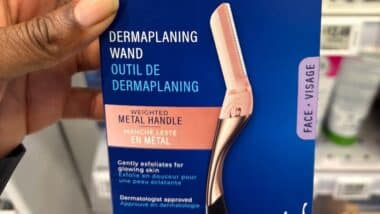
Americans are inundated with spam messages — emails, robocalls, text coupons, and more. With all the advances in technology, it may seem like this is just the way it’s going to be. However, there are laws in place to protect consumers from unwanted spam callers, reduce the amount of spam received, and fight back against the rising tide of spam messages.
A growing number of consumers are participating in class action settlements over unwanted coupons by text, often against clothing stores and restaurants.
What Are Coupons by Text?
A common method of spamming consumers is sending coupons by text. Many businesses offer consumers a variety of ways to get discounts, including texting coupons with different promotions.
Common text coupons include offers for special pricing or free shipping. These coupons may appear to be personalized to offer deals that will appeal to the recipient but are almost always sent by automatic systems that send pre-written messages to hundreds or thousands of recipients at once.
Is Sending Coupons by Text Legal?
Oftentimes, sending coupons by text is a perfectly legal practice, with companies offering consumers savings that the consumers have opted to receive. However, there are certain circumstances in which a company sending coupons by text isn’t legal and may even be considered spam, triggering hefty fines.
So why are some coupons by texts legal and others are not? A set of laws known as the Telephone Consumer Protection Act (TCPA) dictate the parameters for spam that’s legal and spam that’s not.
Passed by Congress in 1991, the TCPA was designed to combat unwanted telecommunications solicitations. In the nearly three decades since the TCPA was first introduced, technology has changed considerably. However, the TCPA has in turn expanded to keep up with the new technologies and telemarketing techniques. Now, the TCPA includes robocalls to spam text messages.
The TCPA requires businesses and organizations to receive a consumer’s express written consent before sending any SMS/text messages with ads, coupons, or other marketing materials.
With coupons by text, consumers must be given a method to opt-out of the communications — often by replying “STOP.”

Under the TCPA, it is also illegal for companies to use artificial voices or recordings on calls to residences and cell phones or send any unsolicited advertising faxes.
Companies that commit TCPA violations can be fined between $500 and $1,500 per violation. Violations made negligently would incur the $500 fine, whereas willful violations are $1,500.
What Is the National Do Not Call Registry?
The National Do Not Call Registry is a list created by the Federal Trade Commission (FTC) as a method of stopping unwanted sales calls. The Do Not Call Registry can be used for both home phones and cell phones and is free to register. The purpose of the registry is to provide a list of consumers who have opted out of receiving these kinds of calls so that law-abiding businesses can consult the list to determine who they should not call. Once you have registered with the list, companies have 31 days to comply and cease contacting you. Registration does not expire, and you will only need to re-register if you change your phone number.
How Does It Protect You From Receiving Coupons by Text?
If your number is on the Do Not Call list, most legitimate businesses will avoid calling you. However, some businesses may call or text anyway, and far more unwanted calls or texts that circumvent the Do Not Call list are scammers who are willing to ignore these laws.
The Do Not Call registry will also not stop legitimate businesses from sending you coupons by text if you have already given express written consent to send these coupons, though you should be able to opt-out of these coupon text messages with individual companies.
The FTC receives countless reports about spam texts and robocalls every year, and cannot respond to all of them. While the agency cannot respond to each individual complaint, consumer reports about the issues help form important data trends that in turn assist the government in figuring out how best to respond, through both technological advancements and litigation.

If you have registered your number with the Do-Not-Call List and attempted to block incoming spam messages and are still receiving unsolicited coupons by text, you may be able to speak with an attorney about your legal rights. Saving a record of all unsolicited text coupons may be helpful if you decide to pursue legal action against the solicitor or join a class action lawsuit.
When Can You Take Legal Action?
Some of the most common groups who violate the TCPA are debt collectors, banks, and telemarketers, but more and more retailers and restaurants are sending coupons by text message. And more and more consumers are responding with litigation, many resulting in significant class action settlements.
For instance, in 2012, Papa John’s paid $16 million to bring an end to a major class action lawsuit that alleged the company failed to get proper consent prior to sending coupon text messages. In 2017, Hooters paid $1.3 million in a class action lawsuit settlement over promotional text messages sent to consumers who had never consented to receive such text messages or who had previously revoked prior express consent. In 2016, Abercrombie & Fitch settled a class action lawsuit for $10 million after consumers claimed the clothing retailer sent coupons by text without permission, and in 2018, Bloomingdale’s paid $1.4 million to settle a class action lawsuit over a similar unsolicited text message spam complaint.
If you have received spam coupons by text from a clothing store or restaurant without having first given express written consent to receive these texts, you may be able to file a lawsuit and pursue compensation. Oftentimes, you may be able to file or join a class action lawsuit that can help you and other class members recover compensation, as well as hold the company responsible for its actions.
How Do TCPA Settlements Work?
As described above, companies often pay millions to settle class action lawsuits that claim they sent coupons by text in violation of the TCPA. When a company decides to settle a class action lawsuit, it is unlikely they will admit fault, but settlements often contain awards for consumers who received coupons via text. According to WRAL, class action settlement payouts can amount from several cents to thousands of dollars; however, class action settlements over spam on consumers’ cellphones have been known to pay hundreds of dollars to each Class Member.
In order to take part in the settlement award, consumers, also known as Class Members, may need to file a claim before a certain deadline. Class Members may also need to be patient. WRAL reports that after notice of the settlement agreement is issued, the court may take many months to issue final approval of the terms of the agreement. This process may also include objections by Class Members and appeals by the parties, which may lengthen the time it takes for Class Member awards to be issued.
Despite the amount of time it can take for Class Members to obtain money from a class action settlement, these agreements are an important way consumers can hold companies accountable for the time, resources, and annoyance spent on unwanted coupons sent by text message. In addition to monetary awards that can amount into the millions in total, companies often agree to change their policies and procedures to ensure they are compliant with the TCPA in the future.
Filing a lawsuit can be a daunting prospect, so Top Class Actions has laid the groundwork by connecting you with an experienced attorney. Consulting an attorney can help you determine if you have a claim, navigate the complexities of litigation, and maximize your potential compensation.
Join a Free Text Message Coupon Class Action Lawsuit Investigation
If you have received coupons or sales advertisements in a text message from a restaurant or clothing retailer and your phone number is registered with the National Do Not Call registry, you may be entitled to compensation.
This article is not legal advice. It is presented
for informational purposes only.
ATTORNEY ADVERTISING
Top Class Actions is a Proud Member of the American Bar Association
LEGAL INFORMATION IS NOT LEGAL ADVICE
Top Class Actions Legal Statement
©2008 – 2026 Top Class Actions® LLC
Various Trademarks held by their respective owners
This website is not intended for viewing or usage by European Union citizens.















8 thoughts onIs It Legal to Send Coupons by Text?
Add me
Add me please
Plz add me
Add me please
Please add me as I receive these kind of messages everyday.
Please add me
I get these text messages alot! I also get text messages asking me ” have you ever taken Zantac and developed xyz. Also, ” Have you used Baby or Talc powder and developed cancer”. How do I stop these things? That’s just to name 3. Plus, the 10$ off ” whichever restaraunt” they are pushing.
add me